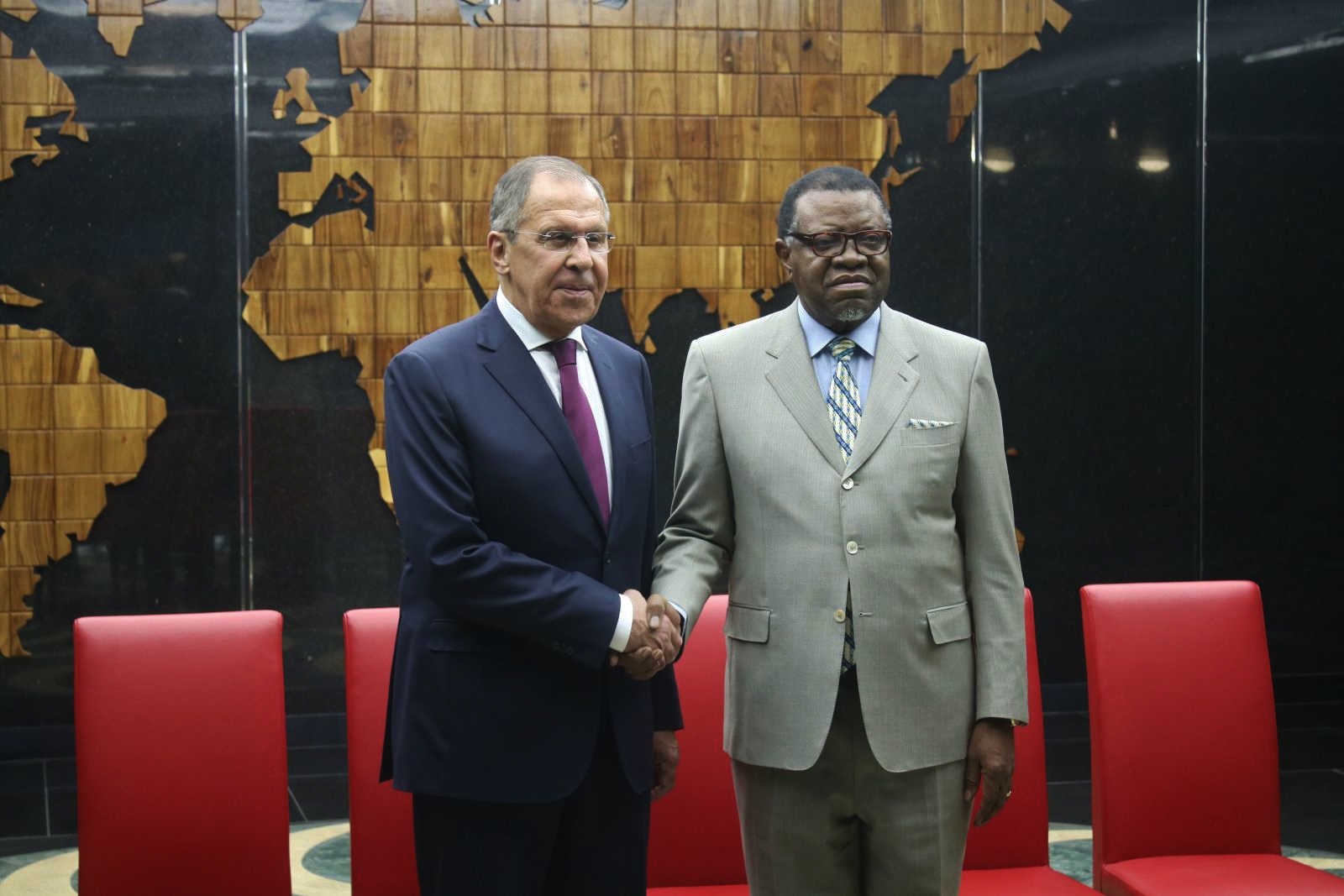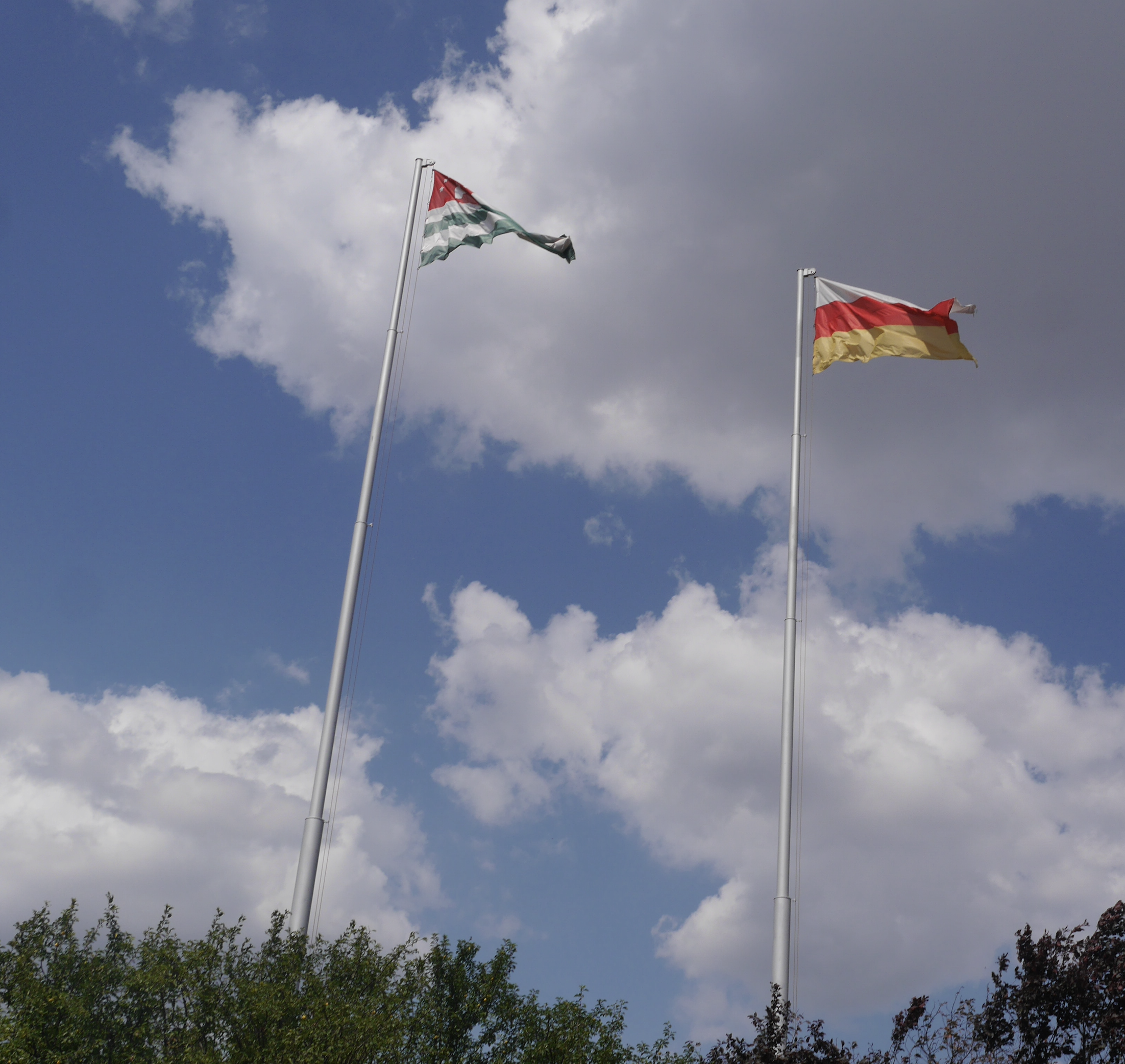
Sergei Lavrov’s Africa Trip: Regional Promises and Global Ambitions
Sergei Lavrov’s Africa Trip: Regional Promises and Global Ambitions
For Russian policymakers who took up their positions in the bureaucracy after the collapse of the Soviet Union, Africa may have been the least important continent on their minds. Even though Africa was the site of many pivotal Cold War–era competitions with the United States, Russia’s resources for conducting any kind of major policy in Africa drastically declined after that decades-long struggle ended. And despite occasional forays to sub-Saharan Africa by Vladimir Putin and Dmitry Medvedev during their presidencies (Islamweb.net, September 5, 2006; Kremlin.ru, June 29, 2009), Russian interest is a pale shadow of what it was—especially in comparison to US and Western investments as well as China’s enormous economic-political presence in Africa (see China Brief, May 27, 2009; November 10, 2017).
As such, Foreign Minister Sergei Lavrov’s March 5–9, 2018, trip to five African states suggests a new effort to elevate Russia’s presence in Africa and its economic-political relations, if not lay the groundwork for subsequent military-technical relations (arms sales) there (Mid.ru, March 5). Indeed, Russian arms sellers have long considered Africa a promising venue for their wares. It also is suggestive to note that the five countries he visited—Namibia, Mozambique, Zimbabwe, Angola and Ethiopia—were all the subject of reasonably high-level Soviet attention during the Cold War. Thus, residual bases for pro-Russian inclinations may still exist there. And notably, Lavrov used his trip to showcase past Soviet support for these countries or their earlier independence movements.
Of course, Lavrov brought up the general need to enhance relations with each country; but clearly, his agenda also included promoting a line that the West was responsible for trying to force its solutions on African countries, which he asserted Moscow opposed. According to Lavrov, Russia wants Africans to stand up for themselves, presumably through their own regional organizations. Wherever possible, he sought to promote energy deals and arms sales: these were his themes in Angola (Mid.ru, March 5). Likewise, in Namibia, he focused on ironing out problems with the implementation of existing bilateral agreements in these areas (Mid.ru, March 6).
But his mission also extended beyond questions of energy and weapons trade. In Namibia, he asserted common views with that government on the coordinating role of the United Nations Security Council—a standard Russian rhetorical ploy—and also claimed shared views on the ongoing conflicts involving South Sudan, Western Sahara, Syria, and Israel and Palestine. In other words, another purpose of this trip was to build international backing for Russian policies abroad and align African states with Moscow on these issues (Mid.ru, March 6). Thus, in Mozambique, Lavrov invoked past examples of Soviet and Russian cooperation with this southeast African country. Moreover, the top Russian diplomat promoted the need for mutual support in the struggle against terrorism as well as common positions at the UN. The strengthening of relations with Mozambique clearly also pertains to Rosneft’s efforts to develop hydrocarbon projects in what were Igor Sechin’s hunting grounds when he worked as a translator for military intelligence (GRU) in Soviet times (Mid.ru, March 7).
All of these themes were equally front and center in Lavrov’s subsequent trip to Zimbabwe, where he also added cooperation on diamonds to the list of issues he addressed in Africa. Additionally, he clearly wanted to take the pulse of the new government in Harare (Mid.ru, March 8).
Finally, in Ethiopia, Foreign Minister Lavrov pushed for a nuclear reactor to be built by Russia as part of Moscow’s major policy of exporting atomic power facilities. Moreover, he called for Russian membership in the African Union’s Mechanism for Police Cooperation (AFRIPOL) and reiterated his ideas about major reforms to the UN, calling for permanent African representation on the Security Council (Mid.ru, March 9).
All in all, Lavrov’s recent visit to sub-Saharan Africa and the positions he espoused there resemble Moscow’s efforts to win friends and influence in Latin America (see EDM, April 8, 2015; October 4, 2017; February 7, 2018). In each case, Russia operates by offering investment and energy projects (including nuclear energy), arms deals, flattery of these regions’ self-importance, and mutual support for efforts to reform the UN in ways beneficial to Moscow—all the while, clearly attempting to coax those regional states away from the West. But beyond the resemblance to Russian diplomacy in places like Latin America, there is a broader and deeper message that Moscow wishes to impart to African and other external audiences.
One issue that particularly rankles Russia’s leadership is the Western belief, famously stated by President Barack Obama (Obamawhitehouse.archives.gov, March 25, 2014), that Russia is merely a regional power. Apart from convincing Africans that Russia is back and ready to play or resume (at least in its own eyes) its past role, Moscow clearly wishes to make the strong point that it is a truly global power with a global reach and capacity to influence foreign policies everywhere. Lavrov’s trip is a means toward that end by telling not only African but other foreign audiences that Moscow is ready, willing and able to take positions and confer material benefits upon African states that align themselves with the Russian Federation.
More broadly, Lavrov went to Africa to deliver the message that Russia intends to challenge Western positions on this continent—and presumably throughout the world—to the best of its ability. Thus the promises of investments, energy projects, arms sales, nuclear reactors, and support for reform of the UN combine with requests to be recognized formally in regional security organizations, even though Russia is not an African power. In other words, this trip was part of Russia’s overall global policy to challenge the West. Whether or not Moscow successfully claws back lost ground in Africa, the broader global challenge Russia presents to the West will remain.


